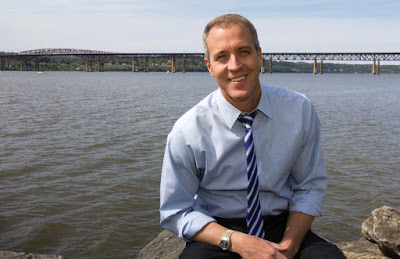US - Support for same-sex marriage is growing - even among groups traditionally opposed to it - according to a new survey by the Pew Research Center. The report, based on a survey conducted earlier this month, suggests public opinion is shifting quickly, two years after the Supreme Court's Obergefell v. Hodges made same-sex marriage legal in all 50 states.
Overall support for same-sex marriage is at its highest level since the Pew Center began polling on the issue more than two decades ago, at 62 percent in favor compared to 32 percent opposed. Support is also growing among groups that have been more skeptical than the population as a whole toward allowing gays and lesbians to legally marry.
Here are six takeways from the survey:
1. Republicans are now split
As recently as 2013, Republicans opposed same-sex marriage nearly two-to-one. They're now virtually split. The survey found that 47 percent of Republican and Republican-leaning respondents favor allowing same-sex marriage, with 48 percent opposed.
2. Older Americans are more favorable now
The survey also found that a majority of Baby Boomers – 56 percent – now approve. That's still considerably lower than younger generations: 74 percent of millennials and 65 percent of Gen Xers expressed support. But it's the first time more than half of the Boomer generation has expressed support for same-sex marriage. Boomers are still much more favorable than their parents; only 41 percent of the Silent Generation favored same-sex marriage.
3. Among White evangelicals, there's a generational divide
There's also a generation gap among another group traditionally opposed to same-sex marriage, white evangelicals. While 59 percent of white evangelical Protestants still oppose same-sex marriage, survey data suggests opinions are changing among the younger generation. Nearly half of white evangelical millennials and Generation Xers said they support legal same-sex marriage, compared to only a quarter of evangelicals born before 1964. Pew says support from the younger group of evangelicals has increased substantially, to 47 percent now, up from 29 percent as recently as March 2016. Meanwhile, the opinions among the older group have held steady.
Overall support for same-sex marriage is at its highest level since the Pew Center began polling on the issue more than two decades ago, at 62 percent in favor compared to 32 percent opposed. Support is also growing among groups that have been more skeptical than the population as a whole toward allowing gays and lesbians to legally marry.
Here are six takeways from the survey:
1. Republicans are now split
As recently as 2013, Republicans opposed same-sex marriage nearly two-to-one. They're now virtually split. The survey found that 47 percent of Republican and Republican-leaning respondents favor allowing same-sex marriage, with 48 percent opposed.
2. Older Americans are more favorable now
The survey also found that a majority of Baby Boomers – 56 percent – now approve. That's still considerably lower than younger generations: 74 percent of millennials and 65 percent of Gen Xers expressed support. But it's the first time more than half of the Boomer generation has expressed support for same-sex marriage. Boomers are still much more favorable than their parents; only 41 percent of the Silent Generation favored same-sex marriage.
3. Among White evangelicals, there's a generational divide
There's also a generation gap among another group traditionally opposed to same-sex marriage, white evangelicals. While 59 percent of white evangelical Protestants still oppose same-sex marriage, survey data suggests opinions are changing among the younger generation. Nearly half of white evangelical millennials and Generation Xers said they support legal same-sex marriage, compared to only a quarter of evangelicals born before 1964. Pew says support from the younger group of evangelicals has increased substantially, to 47 percent now, up from 29 percent as recently as March 2016. Meanwhile, the opinions among the older group have held steady.




































